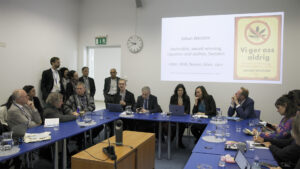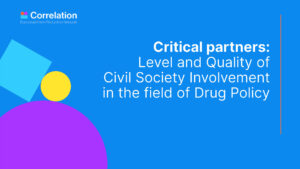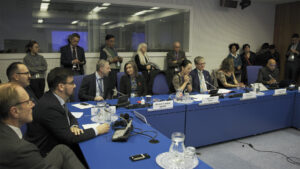In this report, the EU Civil Society Forum on Drugs will provide you with guidelines on how to make the involvement of civil society in drug policy more meaningful.
We hear many criticisms about civil society involvement in drug policy. Civil society organisations complain that the process lacks transparency. It is not inclusive of most affected communities and vulnerable groups. It consists of cherry-picking like-minded organisations. There is no funding for civil society to make its input more sustainable. And so on and so forth. I am sure that many of my readers, who work for civil society organisations, could continue the list of reasons why the process is not meaningful.

But what does make civil society involvement in decision making meaningful? It is not so easy to find any guidelines on positive, consensual criteria. There are international guidelines, approved by the EU, on minimum quality standards for drug demand-reduction interventions, with practical instructions to service providers and decision makers on what constitutes good quality, and how we can ensure that our interventions are developed in an effective way. However, we have only a few documents that either decision makers or civil society can use when it comes to developing, implementing, monitoring, and evaluating civil society involvement as an exercise.
This is why we, the Civil Society Forum on Drugs, an expert group of the European Commission advising decision makers on drug policy issues, decided to create quality standards for the meaningful involvement of civil society into drug policy decision making. First, we reviewed the existing guidelines, recommendations, and articles written on this subject and published our report last year. And now, based on the findings of our literature review, we are glad to share with you the CSFD’s quality standards themselves.
This report aims to inform both decision makers and civil society actors. Decision makers can find a step-by-step guideline on how they can develop civil society involvement mechanisms, applicable to both international, national, and local level decision making. Civil society organisations and activists can also find recommendations about how to become more effective and trusted partners for decision makers. We developed 9 overarching quality criteria for both sides to be able to assess the quality of all steps taken in the process.
Quality standards are great documents – if they are consensual and are implemented. We would like to ask all decision makers and civil society actors to give us feedback on this document so we can improve it in the future!
The CSFD is planning to monitor civil society involvement in drug policies in Europe. Therefore, we have launched a survey among civil society organisations with an online questionnaire – if you are a member of civil society, please fill it in, your input on the national/local situation is very valuable for us.
Create your own user feedback survey
Peter Saros







